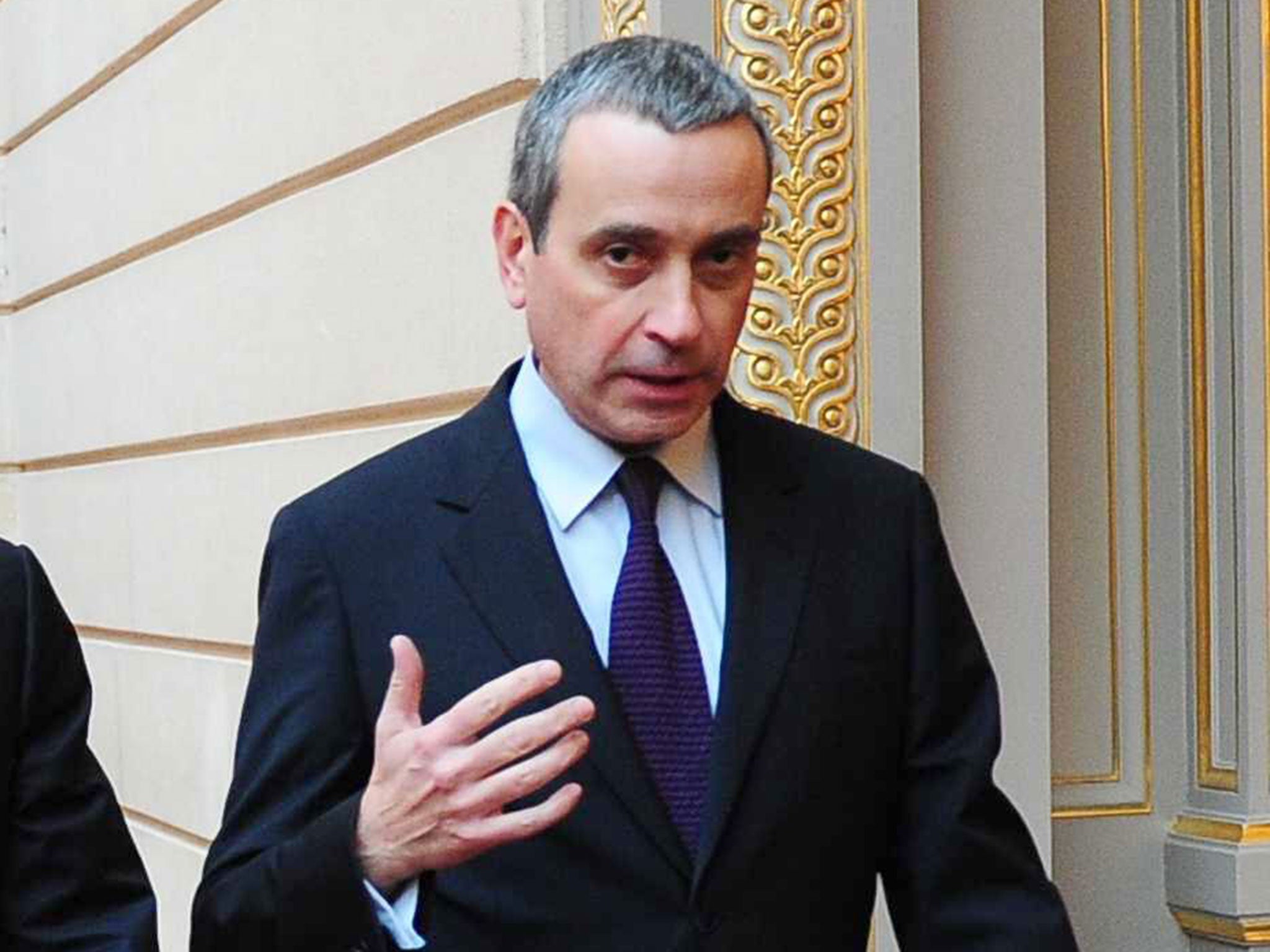Vatican's silence draws fire over 'rejection' of gay French ambassador
With the Vatican still failing to confirm officially Laurent Stefanini's position, the press are widely reporting that his sexuality is behind his rejection

Your support helps us to tell the story
From reproductive rights to climate change to Big Tech, The Independent is on the ground when the story is developing. Whether it's investigating the financials of Elon Musk's pro-Trump PAC or producing our latest documentary, 'The A Word', which shines a light on the American women fighting for reproductive rights, we know how important it is to parse out the facts from the messaging.
At such a critical moment in US history, we need reporters on the ground. Your donation allows us to keep sending journalists to speak to both sides of the story.
The Independent is trusted by Americans across the entire political spectrum. And unlike many other quality news outlets, we choose not to lock Americans out of our reporting and analysis with paywalls. We believe quality journalism should be available to everyone, paid for by those who can afford it.
Your support makes all the difference.The Vatican is facing accusations of homophobia after failing to deny claims that France’s new choice of ambassador to the Holy See has effectively been rejected because of his sexuality.
Laurent Stefanini, the openly gay diplomat at the centre of the row, was nominated as ambassador to the Vatican by France’s council of ministers on 5 January. He should by now have filled the post left when Bruno Jouvert departed the position at the end of February.
But with the Vatican still failing to confirm that it has accepted the new ambassador, French and Italian newspapers are widely reporting that Mr Stefanini’s sexuality is connected to his apparent rejection by the city state.
In France, Le Journal du Dimanche quoted a Vatican insider as saying that the rejection was “a decision taken by the Pope himself”. The daily newspaper Libération headlined its article on the story: “The Pope tarnishes his image”.
Asked by The Independent if Mr Stefanini’s sexuality had led to his rejection, a spokesman for the Vatican said: “We have no comment to make.”
A French foreign ministry source said, however, that Mr Stefanini, 55, a practising Catholic, remained “the best possible candidate for the role”.
A Vatican source told the Catholic News Service in 2009: “For Catholic ambassadors, there is the question of their matrimonial situation. But outside of that, I don’t think there are other criteria.”
Italian media have been quick to remind Francis of comments about gays he made in 2013, which seemed to indicate a shift in attitude from his ultra-conservative predecessor Pope Benedict: “If someone is gay and is looking for the Lord, who am I to judge him? You should not discriminate against or marginalise these people, and the Catechism says this as well,” Francis told journalists.
More recently, though, Francis has spoken in opposition to gay marriage and has declared that though he believes homosexual orientation is not sinful, homosexual acts are.

Liberal Catholics’ hopes for a more inclusive church were further dashed last October when an interim synod report on social issues, which stated that gay people had “gifts and qualities to offer” was watered down drastically by the time the final version appeared, following a fierce backlash by conservative bishops.
Commentators have noted the Vatican’s history when it comes to of blackballing diplomats from overseas.
In 2008 it blocked the appointment of gay French diplomat Jean-Loup Kuhn-Delforge as ambassador to the Vatican. And in 2012 the Vatican rejected Bulgaria’s choice of ambassador to the Holy See because, it was claimed, he had written a novel containing a gay sex scene.
The Bulgarian diplomat Kiril Marichkov, a lawyer who speaks Italian and four other languages, and who is married to an Italian woman, appeared to be an ideal choice to take over as Sofia’s man at the Vatican.
But it emerged that Archbishop Janusz Bolonek, the Pope’s representative in the Bulgarian capital, wrote to his superiors highlighting the offending part of the novel, which was a finalist for an annual literary award in his native country.
Join our commenting forum
Join thought-provoking conversations, follow other Independent readers and see their replies
Comments